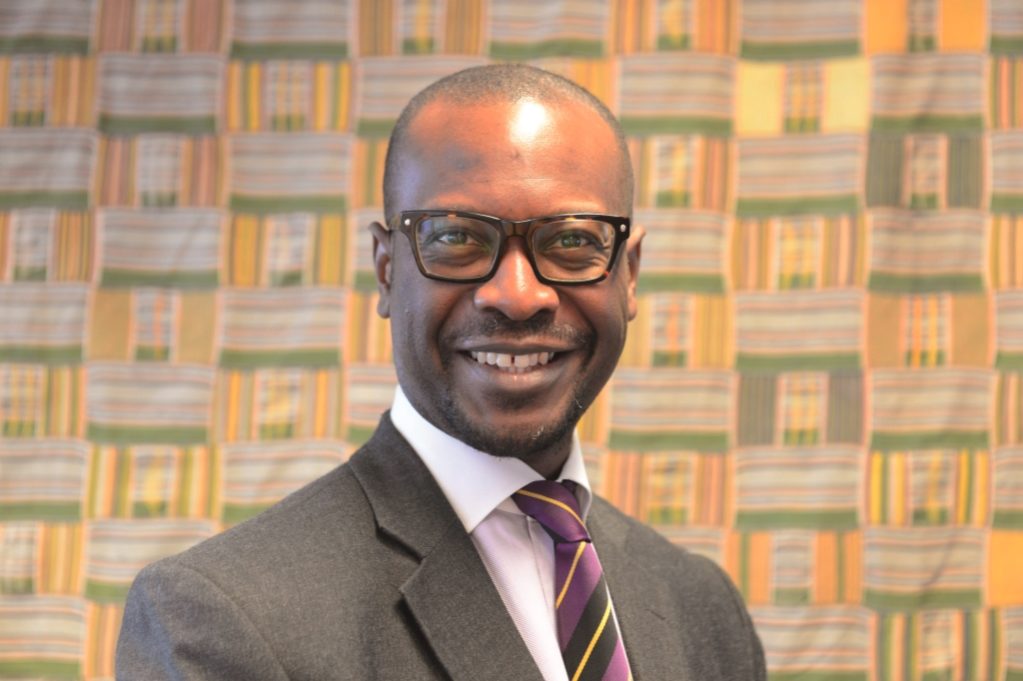You may not recognize his face but you may know the voice.
Liberian-born Max Bankole Jarrett spent more than a decade as a radio program producer and presenter covering major political events during the tumultuous 1990s for the British Broadcasting Corporation’s (BBC) Africa service. Now, the self-styled pan-Africanist is playing a leading role in a bold organization that is at the forefront of policy debate on the continent and its future.
Earlier this year, Jarrett was appointed as deputy executive director of the Africa Progress Panel (APP) headed by former United Nations Secretary General, Kofi Annan, and housed in Geneva. With an all-star cast of panel members, among them Bob Geldof and Graca Machel, the wife of the late Nelson Mandela, the panel is focused on promoting equitable development in Africa. It is also not afraid to point fingers at Western governments for their role in capital flight and underdevelopment in a continent rich in natural resources. The panel’s hard-hitting report last year explored why the continent’s resource-rich nations had failed to reap the benefits of their natural wealth and how this can be changed.
“In many countries, for example, natural resource revenues are widening the gap between rich and poor. Although much has been achieved, a decade of highly impressive growth has not brought comparable improvements in health, education and nutrition,” wrote Annan in the report.
“[A]cting alone, African governments cannot resolve the most intractable natural resource governance challenges. The international community must also shoulder responsibility.”
The report also found that African countries lost $38 billion a year through offshore tax havens and the Democratic Republic of Congo lost $1.36 billion through dubious mining deals between 2010 and 2012 alone.
This year’s report, set to be released in May, will focus on fishing and agriculture, industries that many economists believe could fuel economic growth and large-scale employment throughout the continent. In particular, it will address how African farmers and fishing communities can access the money they need to create so-called green and blue revolutions in Africa.
While efforts in countries like France, Britain and the United States have been made to prosecute companies for corrupt practices committed on foreign shores, Jarrett argues more needs to be done to curb bribery and illicit outflows.
“Western countries and banks should do a lot more to make sure that money that is coming from Africa is legitimately being deposited,” he tells FORBES AFRICA.
Jarrett is skeptical about much of the current ‘Africa Rising’ narrative that he says is overly bullish and doesn’t resonate with many Africans. He argues that political vision can transform the continent. The APP hopes to play a role in this.
“We are moving forward, but this pace as of late, from 2000 has not been as consistently progressive as I would have hoped when I was a young man starting my professional life with the BBC in 1990,” says Jarrett.
“Africa is in a better position now to seize its opportunities; it has more freedom to act and the commodity super-cycle is playing to our benefit. But the ball is in our hands to be dropped.”
The 44-year-old started his career in broadcast journalism. He is no stranger to the world of policy and African diplomacy. He spent 10 years in Addis Ababa working as a communication expert and speechwriter, policy analyst, and a coordinator of a groundbreaking initiative to strengthen media in Africa for the United Nations Economic Commission for Africa before joining the APP.
Jarrett says that the antagonism between some African leaders and Western powers that peaked during the Cold War and continued throughout the second wave of African liberation in the 1990s, has eased and opened up valuable space for debate about governance, transparency and accountability.
“There is no longer a fear of discussing governance and corruption… It is really refreshing for someone who covered this all as a journalist earlier, nearly a quarter of a century ago, to now be able to contribute to, read and reflect on the discussion about governance, where people don’t just get locked up by mentioning it,” says Jarrett.
Jarrett says he hasn’t spent more than eight weeks at a time in Liberia since he left as a child for boarding school in England. Due to the long conflict, and his family’s displacement from his home, he did not return to the country at all between 1989 and 2008. However, during his years at the BBC he monitored and reported on a civil war in his homeland that he thought would never end. For Jarrett, 10 years after the war, Liberia’s prospects are positive if it can overcome the mistakes, divisions and inequalities of the past that led to the political crisis and civil war.
“It could become a beacon of hope for other African nations, just as it was when it became the first black African republic in 1847,” he says.
If Liberia, a country of under 4 million, managed its resources and political conflicts it could become a nation where all of its children were well educated and well fed.
“Liberia could really set the pace for the continent. We’ve already set the pace in terms of electing the first female president; there are so many other firsts we can continue to make,” says Jarrett.
Africa’s ball seems to be in safe hands.
